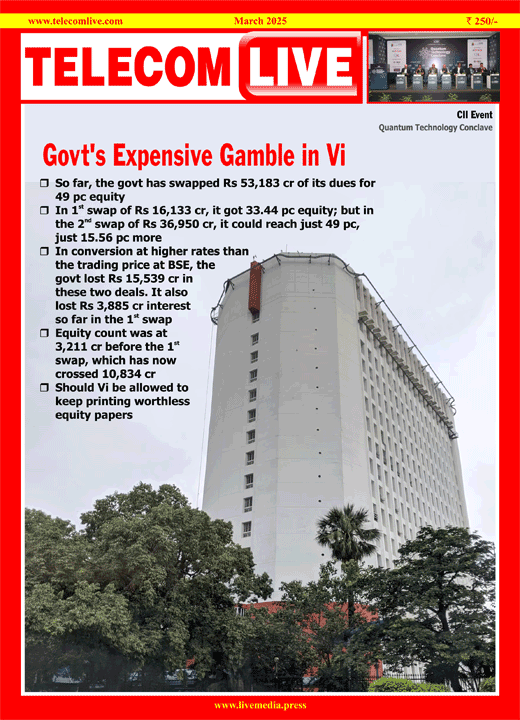Starlink eyes multiple Indian partners to fast-track local satcom launch
Elon Musk’s satellite internet venture Starlink has begun discussions with key Indian players in the satellite communication (satcom), telecom, and broadband sectors, including Tata Group-owned Nelco, Hughes Communications, and state-run Bharat Sanchar Nigam Ltd (BSNL), according to a report by The Economic Times.
Starlink aims to onboard multiple partners to accelerate the rollout of its services across India. The company is looking at both direct and partnership-led models to offer its services in India, the news report quoted a source as saying.
Similar to its global approach with telecom majors like Reliance Jio and Bharti Airtel, Starlink is expected to sign non-exclusive reselling agreements. This strategy allows the company to collaborate with several entities simultaneously, widening its market access.
Vodafone Idea also in preliminary talks
India’s third-largest telecom operator, Vodafone Idea, recently disclosed that it is in early discussions with a few satellite service providers, including Starlink, to explore potential synergies.
Starlink is keen to leverage its massive satellite bandwidth by distributing it through multiple local partners, ensuring widespread availability, the news report said.
To support its Indian operations, Starlink is planning to establish three satellite gateway stations in Mumbai, Pune, and Indore, along with a point of presence (PoP) in Mumbai. The company claims its bandwidth capacity surpasses that of competitors like Eutelsat OneWeb and Reliance Jio-SES by nearly 80 to 90 times.
Currently, Starlink operates using around 4,400 generation-1 satellites and over 2,500 satellites from its newer generation-2 fleet. The firm has proposed to deploy up to 30,000 generation-2 satellites globally in the coming years, as communicated to Indian authorities.
Earlier this month, senior Starlink executives met with Commerce Minister Piyush Goyal to discuss investment prospects, technology integration, and local partnerships. The discussions also emphasised Starlink’s interest in extending services to underserved and remote regions, including parts of Northeast and other difficult-to-reach areas.
Awaiting regulatory approval
Despite not having secured the necessary licences to operate in India, Starlink is actively preparing for launch by engaging with local companies and government bodies. Under its proposed collaborations with Jio and Airtel, the two telecom companies may distribute Starlink’s hardware and services through their retail networks.
Starlink has agreed to most of the terms required for obtaining the Global Mobile Personal Communication by Satellite Services (GMPCS) licence from the Department of Telecommunications (DoT). These include setting up a control and monitoring centre within India and ensuring data routing does not pass through countries sharing land borders with India.
However, the company is yet to fully comply with requirements related to establishing monitoring infrastructure along international borders and providing full coverage, particularly in sensitive regions such as Jammu and Kashmir, and Ladakh.
According to the rules, companies are required to facilitate monitoring by law enforcement agencies within a 10-kilometre radius of international boundaries.



